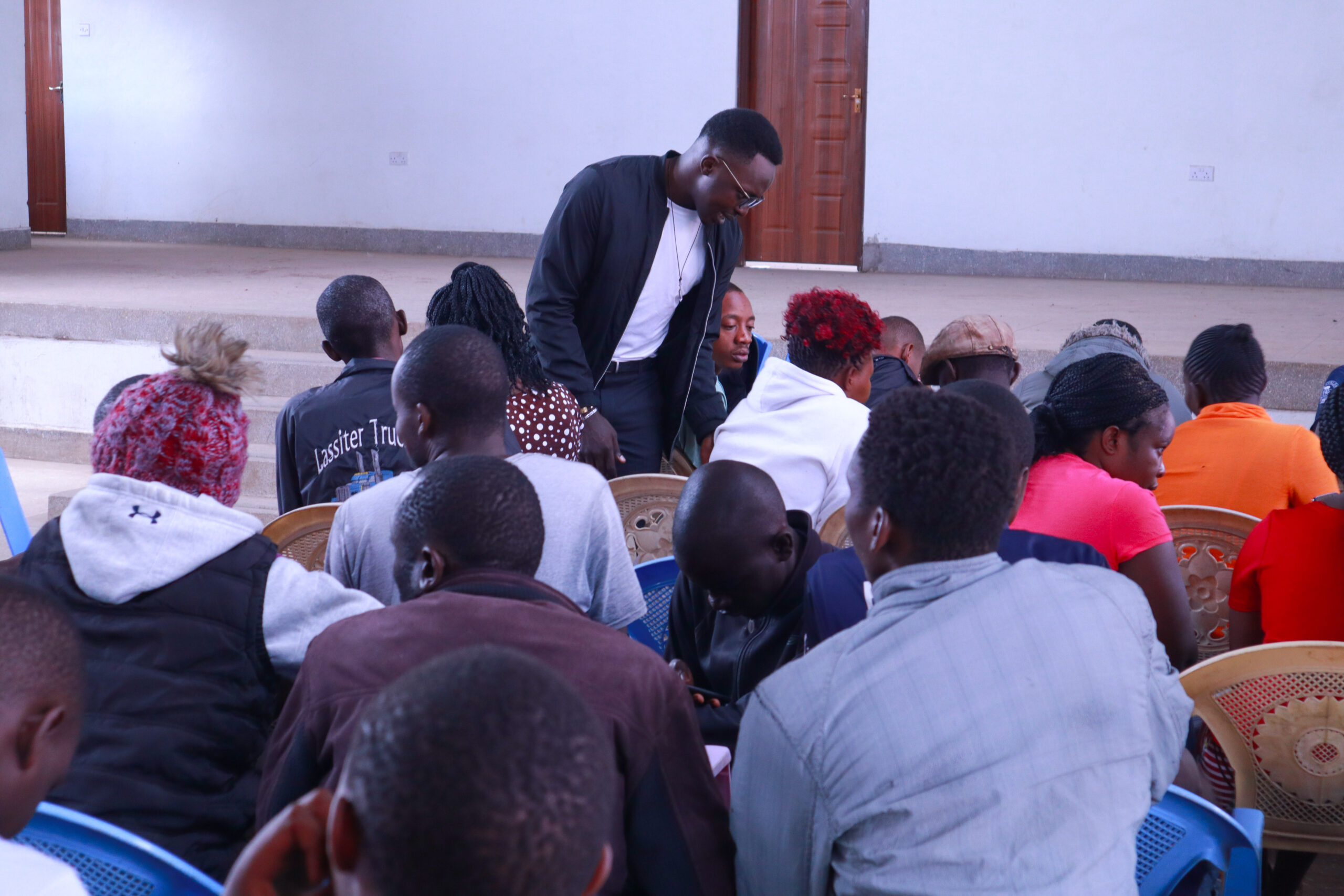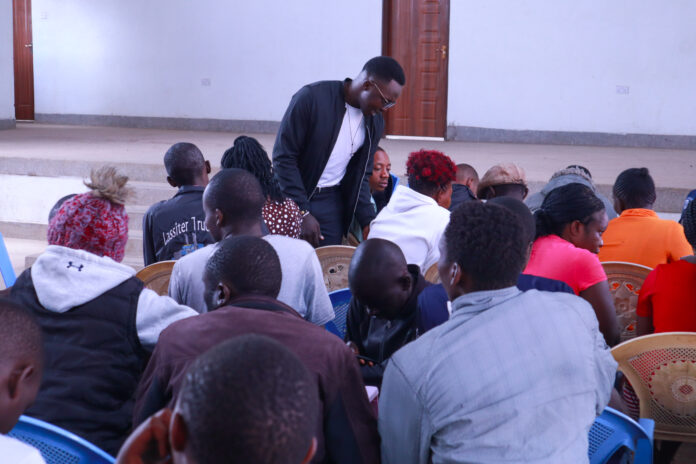By Omboki Monayo
Nairobi, Kenya: Steven Ogweno’s passion for scientific research has seen him achieve several milestones in the rapidly growing field of m-health and its applicable potential among the youth of Kenya.
Through a series of published studies, scientists, wellness advocates, and researchers have explored the impact of digital technology on the health outcomes of young people in Kenya.
“For the last three years, I have been involved in studies aimed at analyzing the impact of mobile-based health applications on the non-communicable disease (NCDs) awareness levels among young people,” Mr. Ogweno told Talk Africa in a January 27, 2023 interview.
According to a report published by the Communication Authority of Kenya (CAK) in 2021, some 59 million mobile phone devices were connected to mobile networks in the country as of September 2021.
At least 26m of these devices were smartphones, the report notes.

“The quarterly sector statistics report which is based on returns by mobile operators shows out the number, 33 million were feature phones while 26 million were smartphones, putting the penetration levels at 67.9 percent and 53.4 percent respectively,” reads the report.
CAK’s Sector Statistics Report indicates that smartphone penetration has since increased to 54.3 percent in the first quarter of the 2022/23 financial year which ran from July to September 2022.
Two years earlier, the 2020 Kenya Digital Report found that 97 percent of all internet users in Kenya access the internet on mobile phones, with Kenyans on average using more than four and a half hours every day to browse the internet on their phones.
It is this smartphone penetration rate and the popularity of the devices among young people that has long pricked the researcher’s curiosity, prompting him to study healthcare as one of the topics that they search for while browsing online.
Mr. Ogweno has also examined some of the ways in which digital technology can be used to improve health services delivery with a focus on NCDs.
One of his studies, published in the East African Journal of Health and Science, examined the effect of e-health on information awareness of NCDs among youths between 18-25 years in Nairobi County, Kenya.
The study used a cohort study design where 272 youths were exposed to MyHeart-Ke App, a mobile app developed for the study that provides information on NCDs and cardiovascular health.
Study participants were then followed over six months to assess their knowledge of NCDs and healthy lifestyle habits.
The study that was done in collaboration with Kevin Oduor and Stephen Mutisya found that awareness of NCDs among the respondents was high at 96 percent, with cardiovascular diseases being the most widely known at 85.8 percent.
It also found that although an average of almost seven out of every ten, or 68.7 percent of participants knew about m-Health, its use was not widespread among the respondents before the study.
However, after the study, MyHeart-Ke was reported to offer a significant and relevant amount of information on NCDs to the youths, with more than half or 51.2 percent preferring it over the mainstream internet.
Another study, published in the SouthEastern European Journal of Public Health, assessed the factors influencing NCDs literacy levels in Vihiga County.
The study used a qualitative cross-sectional study design to collect data through questionnaires and interview guides administered through focused group discussions and key informant interviews.
Mr. Ogweno’s team found that community health programs and initiatives on NCDs, patient support groups, culture, and misinformation have an impact on NCD literacy levels.

The study findings indicate that culture and misinformation, patient support groups, and community health programs and initiatives are three key components that need to be considered when improving NCDs literacy levels.
In collaboration with the Health Policy Partnership, Mr. Ogweno has also studied the effects of climate change on healthcare and the ways in which healthcare systems can adapt to decarbonization.
In a study that was published in the Health Policy Partnership journal, the researcher and his colleagues highlighted the fact that healthcare is responsible for almost one in twenty or 5 percent of global greenhouse gas emissions.
“We found that health systems in countries that commit to decarbonization or reduction of carbon emissions will have to adapt to climate-friendly practices so as to help achieve the set targets,” he says.
This study examined several areas where action could have a measurable effect on lowering the carbon footprint of health systems, including prevention, delivery of care, infrastructure, digital health, and the supply chain.
In another study published in the East African Medical Journal, the scientists examine the sources of information on COVID-19 among the youth and its implications for mental health.
The study used a cross-sectional study design to collect data using an online questionnaire.
Results showed that 76.1 percent of the youth received information on COVID-19 from the nationally televised press briefings by the Ministry of Health, while 56 percent of the youth received information from social media platforms such as Facebook and Twitter.
“Our team found that misinformation on COVID-19 resulted in adverse effects on the mood and mental health of the participants, with 35.7 percent feeling confused by the misinformation, 23.9 percent reporting anxiety, and 22 percent reporting fear,” said the scientist.
Researchers concluded that these findings will inform national strategies to address misinformation and disinformation propagated through social media.
Mr. Ogweno remains committed to the noble aim of using scientific methods to advance the available body of knowledge on the use of digital technology in disseminating healthcare information.
“I am engaged in scientific research in the fields of eHealth, mHealth, and non-communicable diseases with the aim of contributing valuable insights and recommendations on how to improve healthcare delivery and accessibility,” he tells Talk Africa.
Mr. Ogweno is calling upon other young researchers in Africa and beyond to take up the challenge of studying emerging and significant trends in healthcare.
He hopes that his research will inspire many to blaze new trails in health science, particularly in the potential use of new and existing technology to address healthcare challenges.
“It is my hope that my work will serve as an inspiration to young researchers to delve into the field of scientific research, as it has the potential to make a significant impact on public health,” he says.
omboki2725@gmail.com














